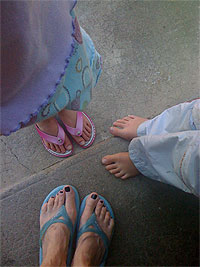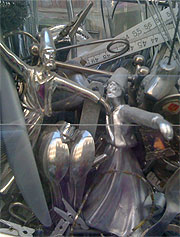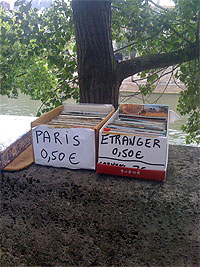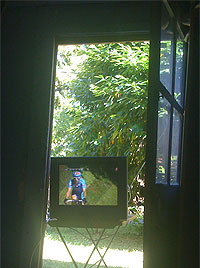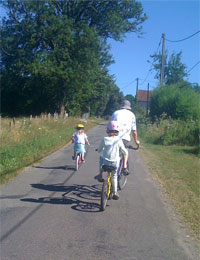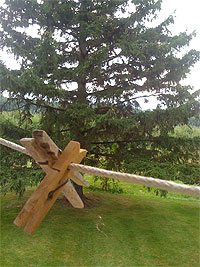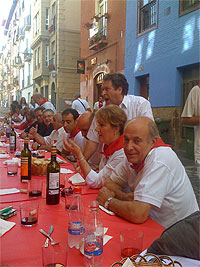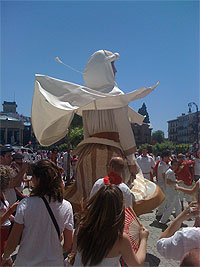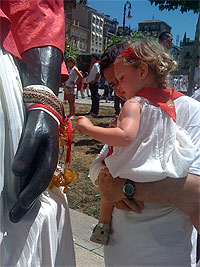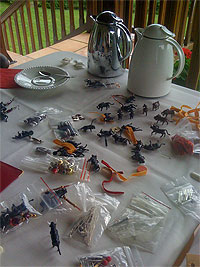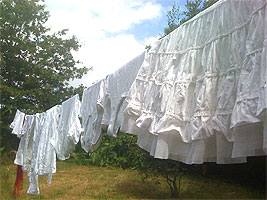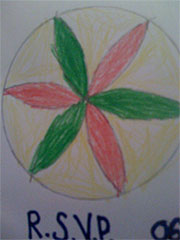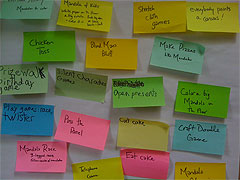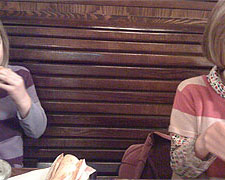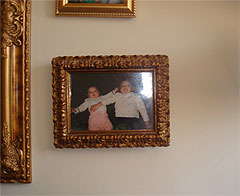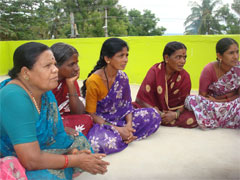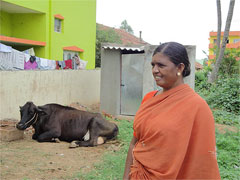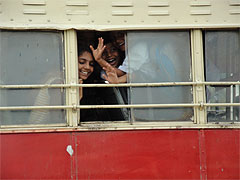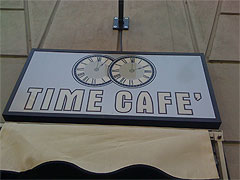Not a Shy Tribe
I stepped on to the escalator and let it lift me diagonally toward the second floor. At the top, a group of women stood in a circle, laughing. Behind them, more women waited in line at the registration desk. I became aware of something gnawing uncomfortably in my stomach: that would be butterflies. I was nervous.
Kind of ridiculous, I told myself. I’m no stranger to conferences and conventions. I learned early in my career how to work a room. I’ve organized, presented and facilitated meetings of all sizes and shapes. And this time I had no responsibilities whatsoever, only myself to consider: What sessions do I want to attend and which parties to drop in on? What was the big deal?
It’d had all come together at the last minute. I’d put the BlogHer ’10 conference in my calendar knowing it was nearly impossible to attend. A mid-summer air-fare. A non-essential trip away from De-facto and the girls. Another excursion just on the heels of my annual escape to the fiesta. But a client’s shifting of dates worked in my favor, landing me too close to the conference – in proximity as well as timing – not to feel absolutely entitled to take a few days and join in.
I knew nobody. Except that’s not true – I knew a lot of bloggers. I’d read their stories, empathized with their rants, gasped at their brave disclosures. If you read someone’s blog – even sporadically – you can know them in ways that are more intimate than you know people who live down the hall from you for years. Still, I was nervous. What would it be like to meet, in the flesh, the bloggers I’d admired and appreciated? What if I never managed to meet any of them? Or what if nobody wanted to meet me? What if it turned out to be a haughty bunch of competitive women, an inner circle of high-trafficked web-mistresses, a network woven too tight to penetrate, a clique around which I’d feel inept and inadequate?
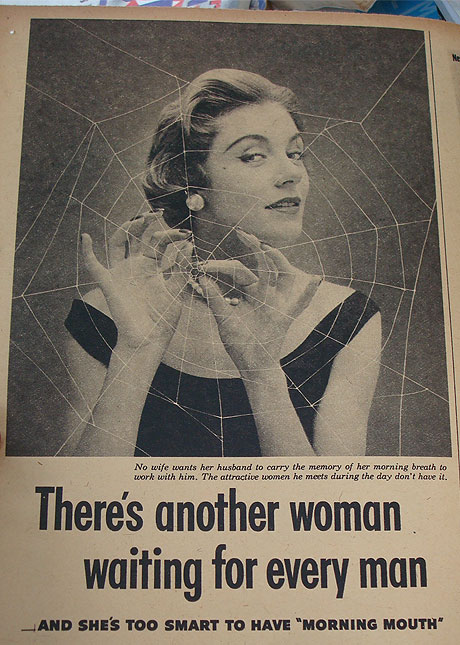
It made me think of something that happened two weeks ago, when Buddy-roo was begging to go to the Centre de Loisir. She was tired of having only her older sister to boss around and interested in the arts-n-crafts-n- things that go with organized summer child-care. On our way to the centre, she skipped with glee. She couldn’t wait to get there.
Until we reached the door. While waiting to register, she moved out of my view and hid behind me. She gripped my hand tight, pinching my fingers. When it was our turn to fill out the paperwork, she began to cry. Her imagined joy about being there had crumbled to the dingy reality in front of her: she didn’t recognize anyone. I knelt down and said all the things you’re supposed to say – you can imagine the pep talk – but inside I was giving myself the big eye roll. Com’n Buddy-roo, don’t be a wuss. How could that bold girl who’d skipped fiercely down the street shrink so swiftly into a timid mama’s girls crying to go home?
Now I knew. Because it did occur to me, standing at the top of the landing that I could make an immediate U-turn to the down escalator and out the door and away from this crowd of smiling women who all appeared to know each other already and to know everything there is to know about blogging.
This is what the girls go through, I thought, every time there’s a new or a first something. First day of school. A new music class. Starting a dance class. Registering at the Centre de Loisir. Whether you’re four years old or in your forties, entering the unfamiliar can be daunting. I’d forgotten how easy it is to feel shy.
But by lunchtime I’d run into Magpie. I’d said hello to another Maggie, Dammit, and shook hands with two of my heroines Mom 101 and Mominatrix. It took me a while, but I managed to track down Amanda and I bought two books for Sweet/Salty to autograph at her book-signing.
But it was just before that very book signing moment that I bumped into two British women bloggers. Nothing against the ‘mericans – I’m one of them and always will be – but there was something reassuringly familiar about these accented voices from the other side of the pond, feeling slightly other, just as I was. That they were interested in finding a bar didn’t hurt. We bonded over Berry BlogHers, a special drink concocted for the conference and I knew I’d found my tribe. So special thanks to Sian and Jay and Jen. And also Minnie and Liz who rounded out our international circle with west coast flair and made it all that much more fun.
I could add several dozen more links: four truly inspiring activists who risk their lives to blog, a number of women (and men) who spoke intelligently and articulately on panels, composers of the cleverest of tweets or people who just cracked me up making conversation in the ladies room. By the end of the conference, I was fearlessly riding up and down those escalators, going where I wanted to go, meeting exactly who – it turns out – I needed to meet. Not feeling shy anymore, and feeling very much part of the tribe.
